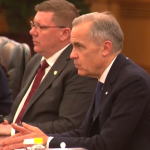![]() A federal appeals court has directed a judge to dismiss a lawsuit over the Trump administration’s attempt to lay off federal probationary employees, stating that the blue and purple states that sued lacked standing to do so.
A federal appeals court has directed a judge to dismiss a lawsuit over the Trump administration’s attempt to lay off federal probationary employees, stating that the blue and purple states that sued lacked standing to do so.
“But this real impact on the employees, who are not parties here, cannot govern our review.”
The decision was 2–1, with a dissent from fellow Circuit Judge DeAndrea Gist Benjamin.
“Because I will not endorse the Government’s attempt to circumvent our Nation’s laws, I respectfully dissent,” Benjamin said.
The majority and dissent disagreed over how the states were purportedly harmed by the federal government’s actions and whether they were harmed enough for a judge to block the layoffs.
“The proper parties to vindicate the rights of employees under federal employment law are the employees themselves, not state governments on their behalf,” Wilkinson wrote in the opinion, which was joined by Circuit Judge Allison Rushing.
The decision marks a limited victory for the administration, which has encountered multiple lawsuits over its attempts to fire different types of federal employees. By ruling on standing, the court blocked one but not all legal avenues for challenging the administration’s mass layoffs.
This lawsuit focused on probationary employees or those who start their federal employment with a trial period that can be terminated according to certain guidelines. One of those is a requirement that the federal government notify states in advance of the layoffs so that they have time to prepare.
According to the court, at least 24,000 probationary employees had been terminated by early March, with thousands shed from multiple federal departments. A district court later ordered the administration to reinstate terminated employees.
Benjamin said that because the administration did not properly notify states, they encountered significant adverse effects such as an unanticipated loss of tax revenue and an increase in resources needed to investigate the influx of unemployment applications.
Wilkinson was more skeptical, stating that the states faced an “informational injury” that was not enough for them to pursue the type of relief they sought. Ruling in the states’ favor, he indicated, would open the floodgates to litigation challenging the federal government and its enforcement of federal law.
“A contrary result would upend our federalist system by ceding federal sovereignty to the states,” he said. “Innumerable federal actions impact state budgets and programs. Under plaintiffs’ theory, every modification in federal funding levels would authorize states to sue in federal court.”
The case, known as State of Maryland v. U.S. Department of Agriculture, was brought by Maryland, Connecticut, Hawaii, Illinois, and other states.
“We are reviewing the decision and weighing our options,” Jennifer Donelan, a spokesperson for the Maryland attorney general’s office, said in a statement to The Epoch Times.











